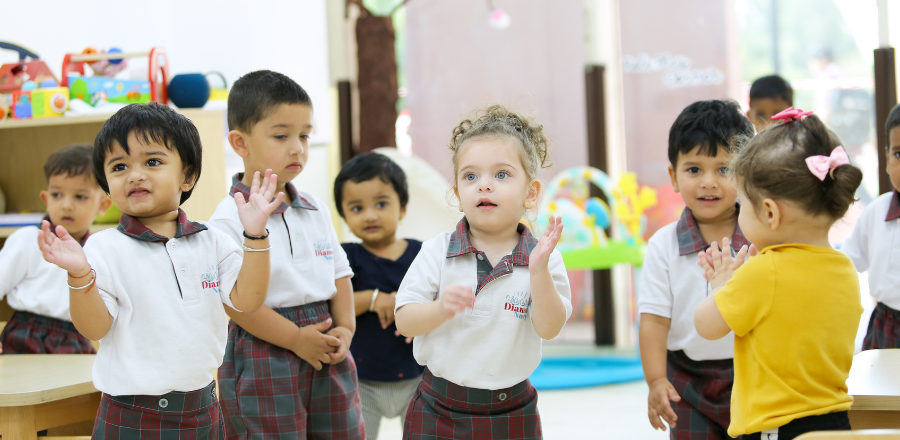Understanding the Early Years Foundation Stage (EYFS)
- August 18, 2024
- ChildhoodEducation

What is the Early Years Foundation Stage (EYFS)?
The Early Years Foundation Stage (EYFS) is a framework that sets the standards for learning, development, and care for children from birth to age five in the UK.
It outlines key areas of learning and development, including personal, social, and emotional development, communication and language, and physical development.
The EYFS aims to ensure that all children have a solid foundation for future learning and success, emphasizing a balanced approach to teaching that includes both structured activities and play-based learning.
What Are the 7 Stages of EYFS?
The 7 stages of the Early Years Foundation Stage (EYFS) refer to the seven areas of learning and development that are essential for children from birth to age five. These areas are divided into three "Prime Areas" and four "Specific Areas."
Personal, Social, and Emotional Development: This stage focuses on helping children develop a positive sense of themselves, form healthy relationships, and manage their emotions. It is foundational for all other learning.
Communication and Language: This area emphasizes the development of listening, understanding, and speaking skills. It is crucial for children to effectively communicate and understand the world around them.
Physical Development: Physical development involves helping children improve their gross and fine motor skills, coordination, and overall physical health, including self-care practices.
Literacy: Literacy in EYFS covers reading and writing. It includes recognizing letters, understanding sounds (phonics), and beginning to form letters and words.
Mathematics: This stage introduces children to basic mathematical concepts, including numbers, counting, simple addition and subtraction, and understanding shapes, spaces, and measurements.
Understanding the World: This area involves helping children make sense of the world around them. It includes learning about people, cultures, technology, and the environment.
Expressive Arts and Design: This stage encourages creativity through exploring and using different materials, experimenting with color, design, and texture, and engaging in imaginative play and expression.
Understanding the EYFS Method of Teaching
The EYFS teaching method focuses on creating a supportive environment where children learn through exploration and interaction. It combines academic learning with personal and emotional development, ensuring a well-rounded foundation.
Core Teaching Strategies under EYFS
Core teaching strategies in the EYFS framework include a mix of adult-led and child-initiated activities. Educators observe children closely to understand their interests and needs, tailoring learning experiences to each child.
There is a strong emphasis on open-ended questions, encouraging exploration, and fostering independence. Teachers also use continuous assessment to monitor progress and adapt their teaching methods to support individual growth.
Role of Play-Based Learning
Play-based learning is a fundamental aspect of the EYFS method. It allows children to explore, experiment, and make sense of the world around them in a natural and engaging way.
Through play, children develop critical thinking, problem-solving skills, and social interactions. Play-based learning supports all areas of development and is considered essential for building the foundations for future learning and success.
What Are the Early Foundational Years?
The early foundational years, from birth to age five, are vital for a child's development, setting the stage for lifelong learning. During this time, children rapidly acquire essential skills that shape their future.
The Early Years Foundation Stage (EYFS) framework supports this critical development by focusing on key learning areas, ensuring children have a strong start in life.
What Is the Aim of Early years foundation stage (EYFS)?
Key Objectives and Goals of the EYFS
The key objectives of EYFS are to foster personal, social, and emotional development, enhance communication and language skills, and support physical development. The framework also emphasizes literacy, mathematics, understanding the world, and expressive arts and design.
Impact on Child Development
The EYFS framework has a significant impact on child development by creating a strong foundation for future learning. It helps children develop confidence, creativity, and resilience, ensuring they are well-prepared for the next stages of their education.
What Are the 4 Themes of EYFS?
1. A Unique Child
The A Unique Child theme focuses on recognizing each child's individual needs and potential. It emphasizes that every child is a competent learner from birth and can be resilient, capable, and self-assured.
2. Positive Relationships
The Positive Relationships theme highlights the importance of secure, trusting relationships with adults and peers. This theme underlines how these relationships help children feel safe, secure, and ready to learn.
3. Enabling Environments
The Enabling Environments theme points to the significance of the environment in supporting and extending children’s development and learning. It emphasizes creating spaces that encourage exploration, creativity, and critical thinking.
4. Learning and Development
The Learning and Development theme focuses on how children develop and learn in different ways. It ensures that teaching is tailored to individual children's needs and that learning is holistic, incorporating all areas of development.
To know more click here.



